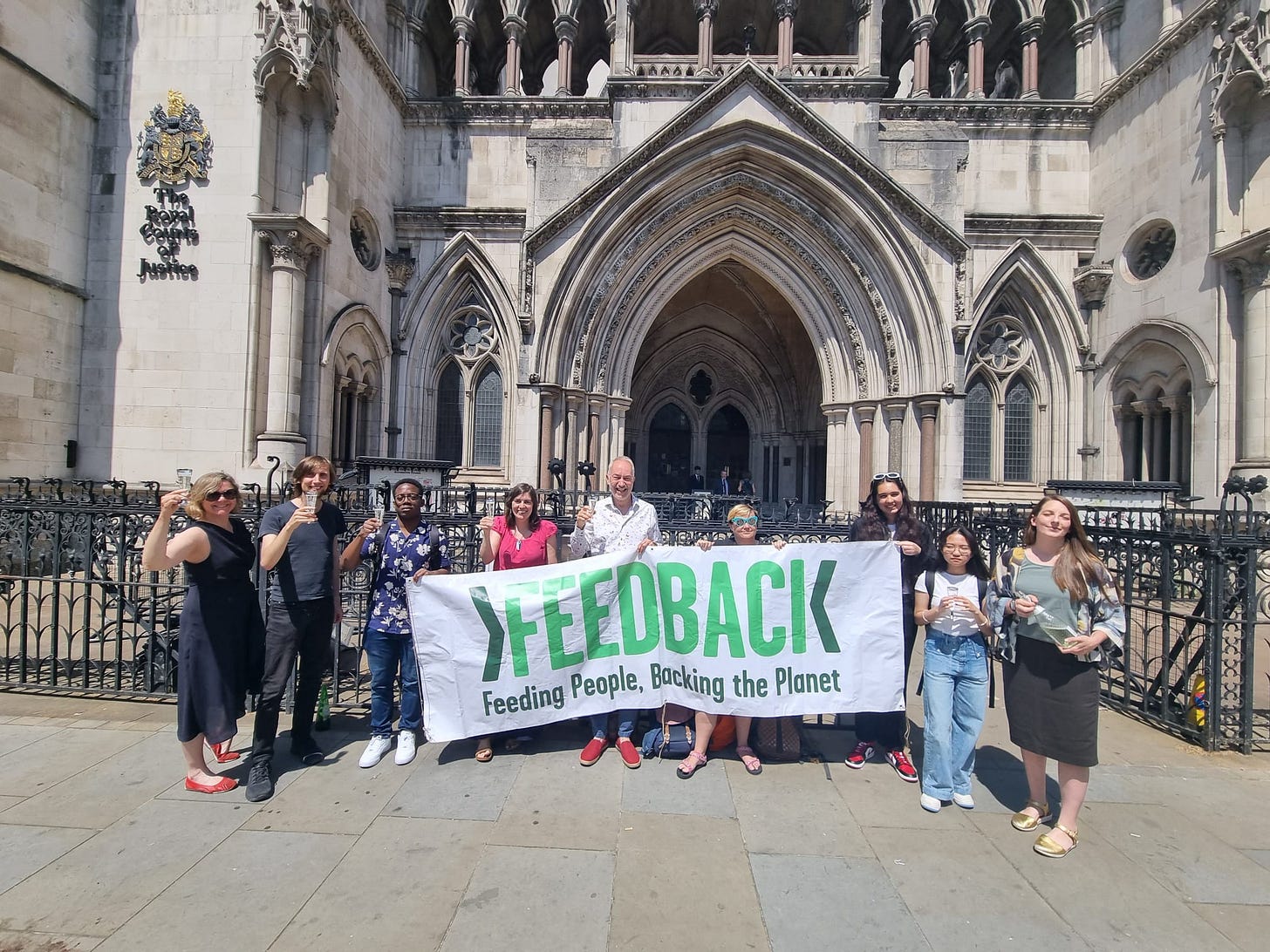Have the government broken the law by failing to adopt measures to reduce meat and dairy consumption? That’s the argument made by the campaign group Feedback, who have just won the right to a judicial review in the Court of Appeal later this year. In court they were represented by Leigh Day who argued that: (1) livestock account for a substantial amount of emissions, (2) however the government’s recent Food Strategy didn’t address the issue of livestock emissions or suggest policies to mitigate it, and (3) that the Secretary of State has a duty to put in place policies to ensure carbon budgets are met under Section 13 of the Climate Change Act 2008. Therefore they argue that the government is acting unlawfully by omitting policies to reduce livestock use.
Feedback are clear on their website as to what they would prefer: “making plant-based the default choice”, getting supermarkets to halve meat sales by 2030, and going after the financial backers of global industrial livestock rearing.
Although Feedback claim on their website to be “a small charity”, their team is twenty five people strong and even includes (inevitably) a “Community Organiser - Food and Racial Justice”. A look at their accounts reveals an income of just under £1 million and an expenditure of just over £1 million. Of all this, a mere £98,015 was in gifts - enough to cover the cost of their offices (£77,012) but little more. The majority of their income came from grants and contractual payments, which in turn was spent on staff (wages, pensions and social security come to £797,338 together). The grants include sums from the Oak Foundation, Joseph Rowntree Charitable Trust, the EU, the National Lottery Community Fund, and the Esmee Fairburn Foundation among others.
Among their efforts are an “Anti-Oppression Learning Project” which “unites a small group of organisations in the food and environmental sector to address systemic racism in the work that we do and broader patterns of oppression in the food, farming and environmental sectors”. Feedback intend to take “a leadership role on anti-racism in the progressive food and farming sectors”.
In other words, a “charity” which is in fact overwhelmingly reliant on big foundations to operate is using judicial review to compel the government to enact specific policies they want, which would have the effect of making many food products more expensive (during a cost of living crisis) with the eventual aim of forcing people into plant based diets, regardless of their own personal choice or circumstances.


